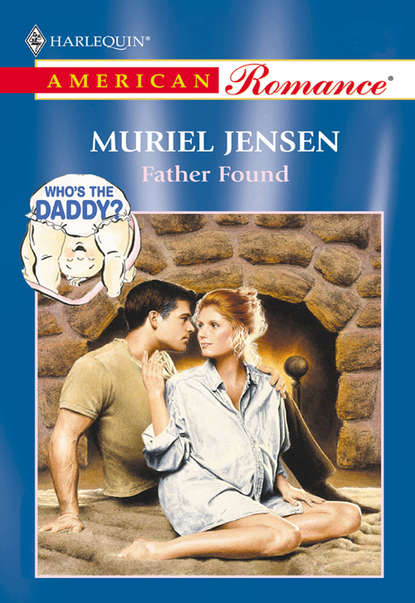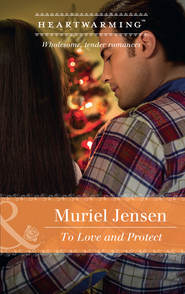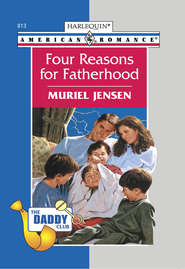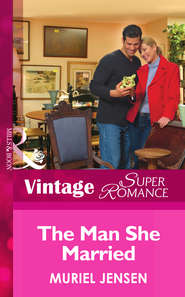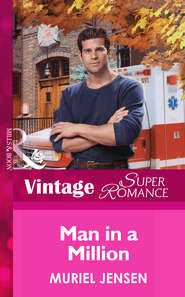По всем вопросам обращайтесь на: info@litportal.ru
(©) 2003-2024.
✖
Father Found
Автор
Год написания книги
2018
Настройки чтения
Размер шрифта
Высота строк
Поля
“Except the phone you lied about.”
He nodded with no apparent guilt. “Which you found by looking through my bag. I think that makes us even.”
Indignant because he was right, she tried to pull herself out of the chair. She imagined she looked a little like a whale attempting a backbend.
Bram came to help her.
She tried to slap his hands away. “I can manage.”
“Let me help you,” he insisted. “I’m fond of that chair.” Placing one hand on her arm and his other arm around her back, he pulled firmly and drew her to her feet.
“Thank you,” she said with precarious dignity. “I’m going back to bed.”
“Good idea.” He walked her to her bedroom. “What woke you? Are you warm enough?”
“I was hungry,” she admitted, rubbing her knuckles against the back of her waist. Or where she used to have a waist. “And the baby loves to stretch out when we sleep and push against my backbone.”
She was walking into the room as she spoke, but Bram caught her arm and splayed his other hand against the small of her back. “Here?” he asked.
She felt several things at once—a little frisson of sensation that seemed to bounce from one vertebra to another, then the simple comfort of his broad, warm hand against her aching back.
“Yes,” she replied, her voice barely there. She reached to the doorjamb for support as both the sensation and the warmth began to spread.
“Let me see if I can encourage him to move.” He went to her bed, drawing her with him, and sat down on the edge. He patted his knee, encouraging her to sit on it.
She eyed him skeptically, concerned on several levels. She could explain only one. “I’ll cripple you,” she warned.
He laughed. “I don’t think so. I’ve been running five miles a day for twenty years.” He pulled her between his legs and sat her on his right knee. “And there’s not that much to you, even with the baby.” He placed his hand over the spot she’d indicated before and rubbed gently but firmly.
She pitched forward at the strength of the first stroke and he put his free arm around her to anchor her.
In a matter of seconds she became his willing slave. She couldn’t help the “aah” of relief as his left arm supported her uncomfortable weight and his right hand rubbed that pressure point until she felt like a puddle of oatmeal.
“Better?” she heard Bram ask.
She considered answering no, because if she said yes, he’d stop.
Reluctantly she made an affirmative sound and pushed herself to her feet. “Thank you,” she whispered, the air suddenly electric around them. They should be sharing a bed, a life, a baby. But there were too many unknowns here for her to settle comfortably into life as it should be.
All she knew about herself was what he’d told her—and if he’d lied about the phone, he might have lied about anything else—or everything else.
He stood, also, and gestured her into bed. “I’ll tuck you in,” he offered.
She complied and he lifted her feet for her, pulling the blankets over them, then over her.
She lay on her side, the only position that was comfortable, and he tucked the blankets in at her neck.
He turned out the light. “Sweet dreams,” he said into the darkness.
“Thank you for the massage,” she replied.
“All part of the service.”
The door closed quietly and she expelled a deep sigh of relief. When she knew who she was, she wondered, would she know what to make of him?
BRAM WAS ALMOST GLAD to see rain the following morning. It was cold and damp and they went through a lot of wood, giving him something to do that afternoon.
He chopped enough wood to replace the power of Bonneville Dam. He was frustrated on so many levels he was about to implode. But he had to bide his time.
In his other life, the government had directed him to a point, but he’d been the best security officer they had and they’d let him do things his way.
When he’d hooked up with Dave and Trev, they’d worked together like a well-maintained machine, each moving in harmony with the other, each mind reading the others’ so that there was seldom a bad move.
Until Afghanistan and Farah’s death.
Bram remembered explaining to them why they shouldn’t use her, that while she was valuable as a translator, she was outside the unit and therefore a potential danger.
But they’d needed her, and he’d fallen under the spell of her intelligence and her sweetness just like Dave had—though neither of them had fallen as hard or as far as Trevyn.
When they’d closed in on Raisu to stop his terrorism of American installations all over the world, Trev had told her to stay behind. But she’d had some scheme about distracting the camp so that the three of them could approach unnoticed, and she’d ignored Trevyn, determined to do what she thought would help.
He remembered hearing her scream when her traitorous brother had mistaken her for them and shot her. Then he remembered seeing her lying there, arms flung out and motionless.
Bram cleaved a wide log of cedar in half with a clean stroke of the ax as he remembered Trevyn’s primal scream.
The mission gone bad, they had no choice but to retreat. Trevyn wouldn’t leave without Farah’s body, and Bram covered their escape while Dave helped Trev carry her down the mountain.
They’d decided to quit after that, each weary of the business for his own reasons. Staying together in civilian life, at least until they’d all found another road, seemed like the sensible thing to do.
Then David had inherited the house in Dancer’s Beach from their CIA radio contact, code-named “Auntie.” He’d saved her life during an African uprising, and in gratitude, she’d left him her home.
That was where Bram had first met Gusty at a costume party. He and his friends had been dressed as the Three Musketeers, and Gusty had worn a velvet bonnet and a dress with petticoats and she’d caught his eye right away.
He’d excused himself from the group he’d been talking with and taken her aside so they could talk.
She hadn’t wanted to talk about herself, had tried instead to make him talk about the house, about how they’d come by it and which one of them owned it.
He’d told her about his sister, his nieces, his years looking for something to validate his existence. With a father who was a felon, and an alcoholic mother, he’d grown up wondering how he could be of any value.
Only his younger sister’s dependence upon him had forced him to try, and her gratitude and her reliance on him finally taught him that they were both better than the genes that made them up.
He’d joined the police force when she’d gotten married at sixteen and developed into just the kind of young man who could fit into the military. He had what it took, he could rise above, learn that adversity could strengthen and not destroy if a man was determined to be a winner.
And that was when Gusty had opened up a little about herself, though he’d learned later that it hadn’t all been the truth.
She’d told him she was a teacher, and that she lived in northern California in a small town called Pansy Junction, but she hadn’t mentioned her sisters. She’d told him she was visiting friends in Dancer’s Beach.
She was always trying to find her place, too, she’d said. That she had a tendency to be cowardly, to avoid risk and danger and heartbreak.





